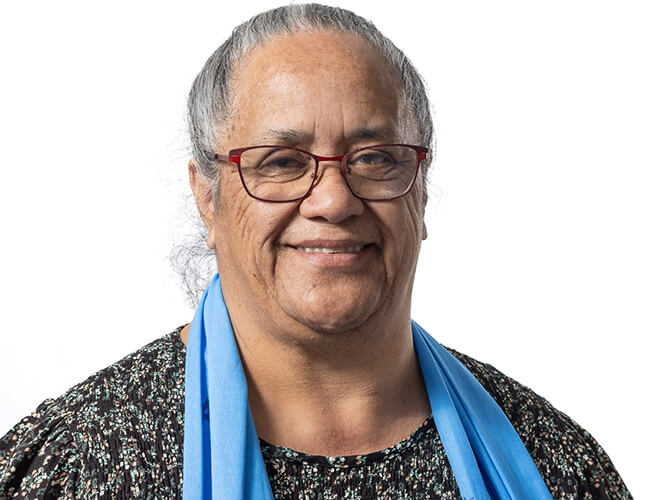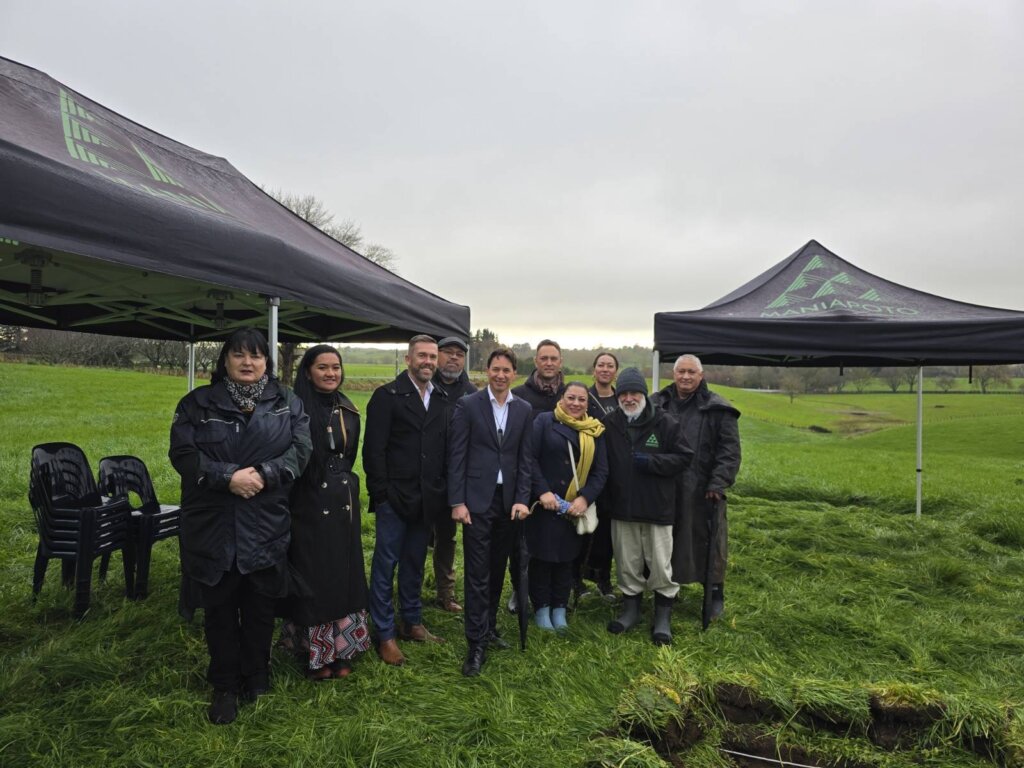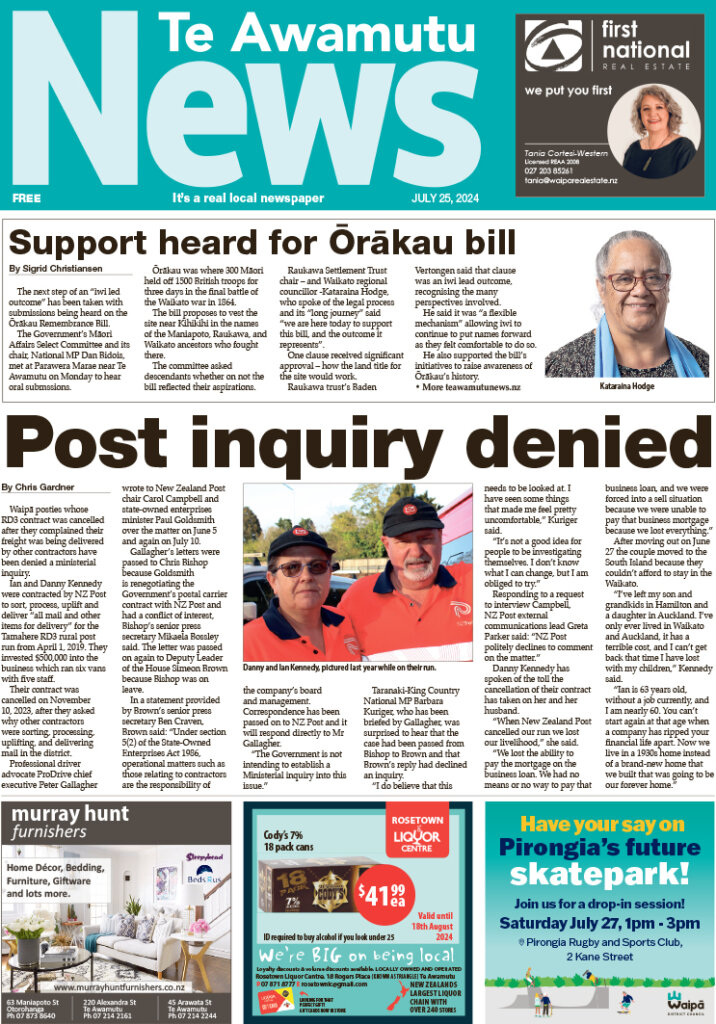The next step of an “iwi led outcome” has been taken with submissions being heard on the Ō-Rākau Remembrance Bill.
The Government’s Māori Affairs Select Committee and its chair, National MP Dan Bidois, met at Parawera Marae near Te Awamutu on Monday to hear oral submssions.
Ō-Rākau was where 300 Māori held off 1500 British troop for three days in the final battle of the Waikato war in 1864.
The bill proposes to vest the site near Kihikihi in the names of the Maniapoto, Raukawa, and Waikato ancestors who fought there.
The committee asked descendants whether or not the bill reflected their aspirations.
Maniapoto tribal historian Kaawhia Muraahi, of the Ō-Rākau Heritage Society was among those who presented an oral submission.
In a later interview with The News he welcomed the community education measures included in the bill, saying most people knew little about the history of the colonial era.
“The education system is out of balance. They are favouring the experiences of the coloniser over the experience and reality of those who were colonised, and those who have suffered – and yet who have bankrolled the New Zealand economy especially in the primary sector.”
He said the Crown now had a nation- building opportunity to rebuild trust, develop its mindset from “transactional to transformational,”
He began his oral submission on Monday quoting Manga Rewi Maniapoto, who had led the Māori fighters at Ō-Rākau, speaking on another parliamentary bill over 100 years ago.
“[It] presents an opportunity for both the Crown and our peoples to move beyond the politics of the day, beyond warm rhetoric, to overcome and transcend the difficult tensions which are sometimes reflected in reactionary responses to views and positions which may be at odds with how each of us views our respective reality,” Maniapoto had said.
MP Dan Bidois, whose whakapapa connection is to Te Kauae marae in Hangatiki, said the oral submissions were a learning experience because he grew up without much connection to wider iwi conversations.
The intergenerational emotion and trauma the descendants carried with them had been strongly evident at the hearing, he said.
“There were tears, but also joy in that iwi will finally have that land to go back to,” he said.
In some ways, the bill was not just about the land – it also paved the way to cultivating understanding of Ō-Rākau in the wider community, he said.
He also learned more about how the struggle to bring about awareness of the injustices had itself built strength among the iwi involved.
Bidois said that while there had “not even been one submission against the bill” some speakers shared concern around the financial resources allocated to education in the bill. He said the committee would consider the issue – although its remit was limited.

Kataraina Hodge
Raukawa Settlement Trust chair – and Waikato regional councillor – Kataraina Hodge, spoke of the “long journey” of the legal process, saying “we are here today to support this bill, and the outcome it represents”.
One clause received much approval – how the land title for the site would work – listing it in the names of tūpuna, ancestors. Raukawa trust’s Baden Vertongen said that clause was an iwi lead outcome, recognising the many perspectives involved.
He said it was “a flexible mechanism” allowing iwi to continue to put names forward as they felt comfortable.

The Government Māori Affairs Committee met at the battlefield before submissions were heard, together with Professor Tom Roa and the Ō-Rākau heritage society’s spokesperson Kaawhia Te Muraahi.









